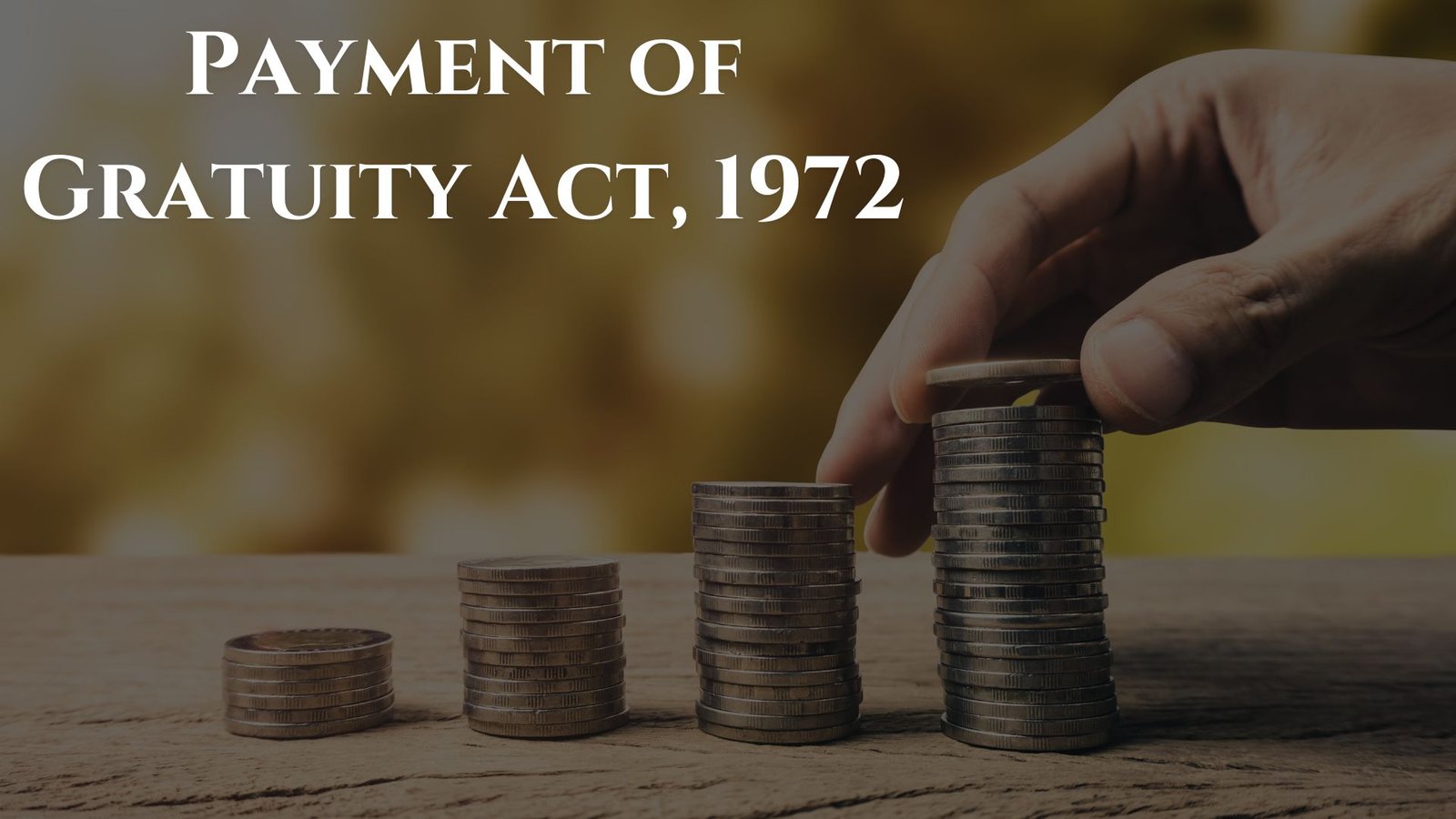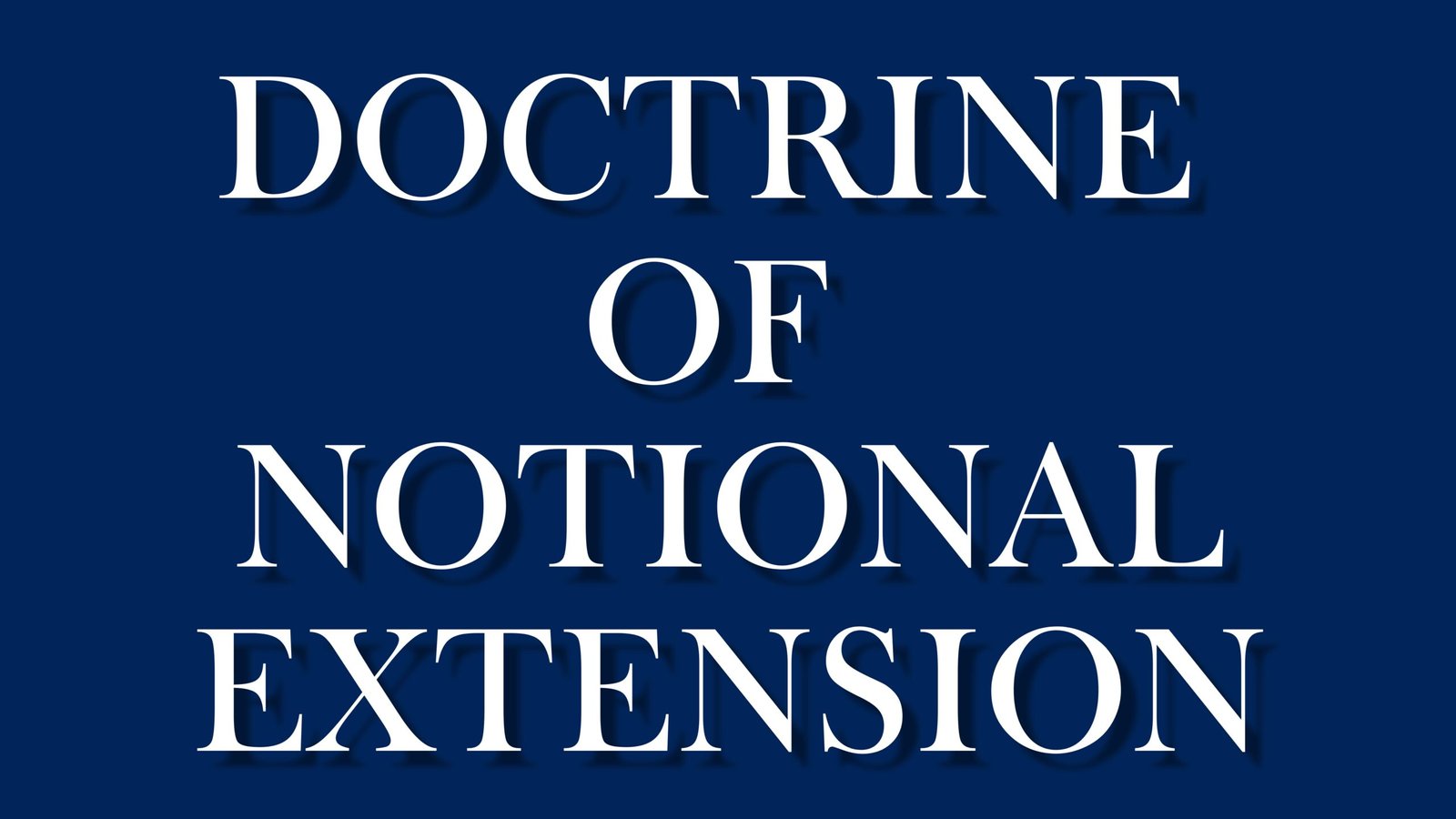On this page you will read detailed information about Payment of Gratuity Act 1972.
As an employee in India, understanding your rights and benefits under the Payment of Gratuity Act of 1972 is crucial. This act provides for a scheme of compulsory payment of gratuity by employers to employees engaged in factories, mines, oilfields, plantations, ports, railway companies, shops or other establishments. The act applies to employees who have completed at least five years of continuous service with an employer. The act sets parameters on calculating the amount of gratuity payable based on the employee’s wages and years of service. It also lays out provisions on eligibility, forfeiture of gratuity, and procedures for recovery and appeals. This article will provide an informative overview of the key features of the Payment of Gratuity Act to help you better comprehend your entitlements under this important legislation.
What Is the Payment of Gratuity Act 1972?
The Payment of Gratuity Act, 1972 is a statute enacted by the Indian Parliament to provide gratuity benefits to employees engaged in factories, mines, oilfields, plantations, ports, railways, and such other establishments wherein ten or more workers are employed.
Applicability
The Act applies to all establishments employing ten or more employees. The gratuity is payable to an employee on the termination of his employment after he has rendered continuous service for not less than five years. The gratuity shall be paid at the rate of 15 days’ wages for every completed year of service or part thereof in excess of six months.
Calculation of Gratuity
The gratuity amount is calculated based on the tenure of service and last drawn salary. The last drawn salary includes the basic wage plus dearness allowance. The maximum amount of gratuity payable is Rs 20 lakhs. For calculating the period of service, the employee is entitled to gratuity for the period he was on duty as well as on leave including absence due to sickness, accident, layoff, strike, and lockout.
Nomination
An employee can nominate any person to receive the gratuity in case of his death. If there are no nominees or the nominees predecease the employee, the gratuity shall be payable to the heirs of the employee. The employer has to maintain a register of nominations.
Disputes
In case of any dispute regarding the amount of gratuity payable, the employee can approach the Controlling Authority appointed under the Act. The Authority shall determine the amount of gratuity payable within three months of the date of application. Any person aggrieved by the order of the Controlling Authority can appeal to the Appellate Authority.
In summary, the Payment of Gratuity Act, 1972 aims to provide financial security to employees after retirement or in case of death during service. The gratuity amount acts as a token of appreciation for the services rendered by the employee during the period of employment.
In the previous post, we had shared information about An Overview of the Official Secrets Act 1923, so read that post also.
Key Definitions Under the Act
Gratuity
Under the Act, ‘gratuity’ refers to the amount payable to an employee in recognition of his continuous and meritorious service for at least five years on termination of his employment due to superannuation, retirement, resignation, death or disablement. Gratuity is calculated at the rate of 15 days’ wages for every completed year of service or part thereof in excess of six months.
Employee
An ‘employee’ means any person employed on wages in any establishment, factory, mine, oil field, plantation, port, railways company or shop, to do any skilled, semi-skilled, or unskilled, manual, supervisory, technical or clerical work, whether the terms of such employment are express or implied. Apprentices are also considered as employees under the Act.
Continuous Service
‘Continuous service’ means uninterrupted service, and includes service which is interrupted by sickness, accident, leave, lay-off, strike or lock-out or cessation of work not due to any fault of the employee.
Family
The term ‘family’ includes wife/husband, dependent children, dependent parents, widow/widower and children. For the purpose of dependability, a son is considered dependent until he starts earning, a daughter is considered dependent until she starts earning or gets married (whichever is earlier), and parents are considered dependent if they are unable to earn a livelihood due to old age or infirmity.
Nominee
A nominee is a person named by the employee during his lifetime to receive the gratuity in case of his death. The employee is required to nominate one or more family members as his nominee, and has the option to change the nomination during his service. If there is no nomination made by the employee, the gratuity will be paid to his legal heirs.
In summary, the key definitions outlined in the Act are intentionally broad to ensure maximum coverage and benefits to employees upon cessation of their employment. Understanding these definitions helps in the correct calculation and disbursement of gratuity to eligible employees.
Eligibility and Calculation of Gratuity
To be eligible for gratuity payment under the Act, an employee must have completed at least five years of continuous service with an employer. Gratuity is calculated based on the last drawn salary and the number of years of service.
Basic Salary and Allowances
The calculation of gratuity amount payable to an employee is based on the basic salary and dearness allowance. It does not include any bonus, commission, house rent allowance or overtime allowance. The basic salary refers to the total salary paid to the employee excluding such allowances.
Calculation of Gratuity Amount
The gratuity amount is calculated as follows:
Gratuity = Last drawn basic salary plus dearness allowance X Number of years of service X 15/26
The 15/26 factor represents 15 days out of 26 working days in a month. For each year of service over six months, gratuity is calculated proportionally. For example, if an employee has served for 7 years and 5 months, gratuity will be calculated for 8 years.
Maximum Limit
The maximum limit of gratuity payable is Rs. 20 lakhs. The Government reviews this limit periodically based on inflation and cost of living. If the gratuity amount calculated as per the formula above exceeds Rs. 20 lakhs, the maximum limit of Rs. 20 lakhs will be payable.
Taxability of Gratuity
Gratuity received up to Rs. 20 lakhs is exempt from income tax under Section 10(10) of the Income Tax Act, 1961. However, any gratuity amount in excess of Rs. 20 lakhs is taxable at the applicable income tax slab rates. The employer will deduct TDS at the time of payment if the gratuity amount exceeds the tax exempt limit.
The Payment of Gratuity Act, 1972 aims to provide financial security to employees after retirement in the form of a lump sum gratuity payment. The eligibility criteria and calculation methodology ensure that the gratuity amount paid is commensurate with the number of years of service and last drawn salary. The tax exemptions provided make the gratuity amount paid more valuable to employees.
When Is Gratuity Payable?
Under the Payment of Gratuity Act, 1972, gratuity is payable to an employee upon the termination of their employment after they have rendered continuous service for not less than five years. Termination of employment may happen in the following cases:
Superannuation
When an employee retires at the age of superannuation as per the company’s rules, they are eligible to receive gratuity. The superannuation age is usually 58 or 60 years.
Resignation
If an employee resigns after completing at least five years of continuous service, they qualify to receive gratuity. The employer is obligated to pay gratuity in this scenario.
Death or Disablement
In the event of death or permanent disablement of an employee, gratuity is payable to them or their nominee. Permanent disablement refers to disablement that permanently incapacitates an employee from engaging in any employment.
Retrenchment
When an employee is retrenched due to downsizing or closure of the company, gratuity becomes payable if they have completed five years of continuous service. Retrenchment means termination of employment not as a measure of punishment but due to surplus labor or economic necessity.
The gratuity amount depends on the employee’s last drawn salary and the number of years of service completed. The employer must pay gratuity within 30 days from the date it becomes payable. An employee can claim gratuity even after they resign or retire by sending a written application to the employer. If the employer fails to pay gratuity, the employee can file a complaint with the local labor authorities to claim their dues.
In summary, gratuity becomes payable to an employee when they resign, retire, die, become disabled, or are retrenched after completing at least five years of continuous service with an organization. It is an important terminal benefit and a statutory right of employees in India.
Forfeiture of Gratuity
According to the Payment of Gratuity Act, 1972, an employee forfeits their right to receive gratuity under certain circumstances. Forfeiture implies permanent loss of gratuity amount that would have otherwise been payable to an employee on termination of service.
Misconduct or willful negligence
An employee forfeits gratuity if services are terminated due to misconduct or willful negligence. The misconduct should be grave and result in damage or loss to the employer. Some examples are theft, fraud, willful damage to employer’s property, etc. Minor mistakes or carelessness do not constitute willful negligence.
Riotous or disorderly conduct
If an employee is involved in any riotous or disorderly conduct in relation to workplace which results in conviction in a court of law, it may lead to forfeiture of gratuity. The riotous act should relate to the employment relationship or workplace. Isolated instances of violence not related to employment do not result in forfeiture.
Criminal offense
If an employee is found guilty of criminal offense involving moral turpitude in the course of employment, it may result in forfeiture of gratuity. The offense should relate to the employment and be grave enough to justify forfeiture. Petty offenses do not warrant forfeiture. Mere accusations or charges do not constitute forfeiture unless proven guilty.
In all cases of forfeiture, the employer needs to establish relevant facts and events through an inquiry. Forfeiture cannot be imposed arbitrarily or based on conjectures. If forfeiture is challenged, the employer has the onus to prove the employee’s misconduct, riotous behavior or guilt in a court of law. Forfeiture of gratuity is a serious matter and the employer must exercise it judiciously based on principles of natural justice and equity.
In summary, forfeiture of gratuity is not automatic and the employer must follow principles of fairness and justness before taking such a harsh step. Forfeiture should be exercised only in cases of serious acts of omission or commission by the employee relating to employment.
Maximum Limit of Gratuity
According to the Payment of Gratuity Act, 1972, the maximum amount of gratuity payable to an employee cannot exceed Rs. 20 lakhs. The Act specifies the maximum limit of gratuity as 15 days’ wages for every completed year of service or part thereof in excess of 6 months.
The maximum gratuity limit of Rs. 20 lakhs is applicable for employees of both private and public sector companies. If an employee has served for more than 40 years, the gratuity amount payable will still be capped at Rs. 20 lakhs. The maximum gratuity limit is revised periodically by the Central Government.
In order to calculate the maximum gratuity payable to an employee, the following formula is applied:
Gratuity Amount = Last drawn salary x 15/26 x Number of years of service
The “15/26” factor is applied as gratuity is paid at the rate of 15 days’ basic salary for each year of service. The number of days in a month is taken as 26 for calculation.
For example, if an employee’s last drawn monthly basic salary is Rs. 50,000 and he has served the organization for 35 years, his gratuity amount will be:
Rs. 50,000 x 15/26 x 35 = Rs. 19,80,769
However, as the maximum gratuity limit is Rs. 20 lakhs, the employee will be entitled to receive only Rs. 20 lakhs as gratuity and not Rs. 19,80,769.
In case of an employee’s demise, the maximum gratuity amount is paid to the nominee or legal heir as per the employee’s nomination. The ceiling on gratuity of Rs. 20 lakhs is not applicable in case of death of an employee while in service. The entire gratuity as per the formula is paid to the nominee or legal heir in such unfortunate events.
Taxation of Gratuity
Gratuity received by an employee is taxable under the head ‘income from salaries’. According to the provisions of the Income Tax Act, gratuity received in excess of Rs. 20 lakhs (Rs 10 lakhs in case of Government employees) is taxable. The gratuity amount up to Rs. 20 lakhs (Rs 10 lakhs in case of Government employees) is exempt from tax under Section 10(10) of the Income Tax Act.
The employer is required to deduct tax at source (TDS) from the gratuity paid to the employee. The TDS shall be deducted as per the rates specified by the income tax department in the tax deduction tables. No TDS is required to be deducted if the gratuity amount does not exceed Rs. 20 lakhs (Rs 10 lakhs in case of Government employees). The employee is required to report the gratuity amount in the income tax return and claim the tax exemption for the exempt portion of the gratuity.
The gratuity fund created by the employer is also eligible for tax benefits. The contributions made by the employer to the gratuity fund are allowed as a deduction from business income under Section 36(1)(v) of the Income Tax Act. The income earned from the investment of the gratuity fund is exempt from tax under Section 10(25) of the Act. The gratuity fund has to be recognized by the Commissioner to avail these tax benefits.
The gratuity amount received on the death of an employee by the nominee is exempt from tax. The entire gratuity amount received by the nominee on the death of the employee is exempt under Section 10 (10) (i) of the Income Tax Act. In case the gratuity was originally received by the employee during his lifetime and was taxable, the tax paid on such gratuity amount can be claimed as a refund by the nominee.
In summary, gratuity amount up to Rs. 20 lakhs (Rs 10 lakhs for Government employees) received during the lifetime of an employee is exempt from tax. The gratuity amount in excess of Rs. 20 lakhs (Rs 10 lakhs for Government employees) is taxable as per the income tax slabs applicable to the employee. Gratuity received by the nominee on the death of the employee is fully exempt from tax. Proper reporting of gratuity amount in tax returns and claiming of exemptions can help employees and nominees save tax.
Filing a Claim Under the Act
To file a claim for payment of gratuity under the Act, you must submit an application to your employer within 30 days of becoming eligible to receive the gratuity. Failure to do so may result in denial of your claim. The following process outlines the steps to file your application:
You must obtain Form ‘I’ from your employer, which is the application for payment of gratuity. Fill out the application with details including your name, employee number, date of joining and leaving the organization. Compute your total number of years of service and the gratuity amount due as per the provisions of the Act.
Submit proof of your employment tenure with the organization, such as certified copies of appointment letters, promotion or transfer letters. Provide evidence to support periods of leave, if any. These documents will help establish your eligibility and the gratuity amount.
Upon resignation or retirement, request your employer for a gratuity calculation sheet or computation statement in addition to Form ‘I’. This will contain details of your monthly salary, dearness allowance, commission and other relevant factors considered for calculating your gratuity. Carefully review the details in the computation statement to ensure there are no errors.
In the event of disputes regarding the gratuity amount or an employer’s failure to pay the gratuity, you may need to file for appropriate relief through judicial processes. The application for filing such a petition in court should be made within one year of becoming eligible to receive the gratuity. If needed, seek legal counsel regarding your rights and the proper procedures to follow in such a situation.
The Payment of Gratuity Act, 1972 aims to protect employee rights to receive gratuity benefits in a timely manner. Knowing the proper application process and your legal entitlements under the Act will help ensure you receive your due gratuity upon the end of employment. Staying up to date with the latest amendments to the Act is also advisable.
FAQs on Payment of Gratuity Act, 1972
The Payment of Gratuity Act, 1972 regulates the payment of gratuity, a reward for long service, to employees engaged in establishments. It applies to all employees regardless of salary. As an employer or employee, it is important to understand your rights and obligations under this Act.
Gratuity refers to the monetary reward given by an employer to an employee for rendering continuous service for not less than five years. It is paid when an employee leaves an organisation due to retirement, resignation, superannuation, disablement due to accident or disease. Gratuity is calculated based on the wages and duration of service.
An employee who has rendered continuous service for not less than five years on termination of his employment is eligible for gratuity. Continuous service means uninterrupted service and includes service interrupted by sickness, accident, authorized leave, strike, lockout and cessation of work not due to any fault of the employee.
Gratuity payable to an employee is calculated as 15 days’ wages for every completed year of service or any part thereof in excess of six months. The wages here mean the last drawn salary including dearness and other allowances. The maximum gratuity payable is Rs. 20 lakhs (as of 2019).
An employee forfeits his gratuity if he is dismissed due to riotous or disorderly conduct or any act of violence on his part or if he is terminated due to his willful omission or negligence causing any damage or loss to the company. Gratuity payable to an employee may be wholly or partially forfeited if the services of such employee have been terminated for any act of disorderly conduct or negligence.
In case of denial of gratuity, an employee may submit an application to the controlling authority of the area for direction. The controlling authority may issue a notice to the employer and give him an opportunity to be heard. After hearing both sides, the controlling authority shall determine the amount payable. Any person aggrieved by the decision of the controlling authority may file an appeal to the regional labour commissioner.
Conclusion
In closing, understanding the key provisions of the Payment of Gratuity Act, 1972 will empower you to ensure your rights to gratuity are upheld. As an employee, knowing your entitlements under the law allows you to receive your full benefits. Likewise, as an employer, comprehending the requirements helps you meet legal obligations. With knowledge and preparation, both parties can navigate the payment process smoothly. Stay informed and proactive to guarantee fair, timely gratuity for yourself or your employees. Compliance protects all and builds goodwill. Through a spirit of collaboration, we uphold justice in the workplace.
Disclaimer
The information and services on this website are not intended to and shall not be used as legal advice. You should consult a Legal Professional for any legal or solicited advice. While we have good faith and our own independent research to every information listed on the website and do our best to ensure that the data provided is accurate. However, we do not guarantee the information provided is accurate and make no representation or warranty of any kind, express or implied, regarding the accuracy, adequacy, validity, reliability, availability, or completeness of any information on the Site. UNDER NO CIRCUMSTANCES SHALL WE HAVE ANY LIABILITY TO YOU FOR ANY LOSS OR DAMAGE OF ANY KIND INCURRED AS A RESULT OR RELIANCE ON ANY INFORMATION PROVIDED ON THE SITE. YOUR USE OF THE SITE AND YOUR RELIANCE ON ANY INFORMATION ON THE SITE IS SOLELY AT YOUR OWN RISK. Comments on this website are the sole responsibility of their writers so the accuracy, completeness, veracity, honesty, factuality and politeness of comments are not guaranteed.
So friends, today we talked about Payment of Gratuity Act 1972, hope you liked our post.
If you liked the information about Payment of Gratuity Act 1972, then definitely share this article with your friends.
Knowing about laws can make you feel super smart ! If you find value in the content you may consider joining our not for profit Legal Community ! You can ask unlimited questions on WhatsApp and get answers. You can DM or send your name & number to 8208309918 on WhatsApp








